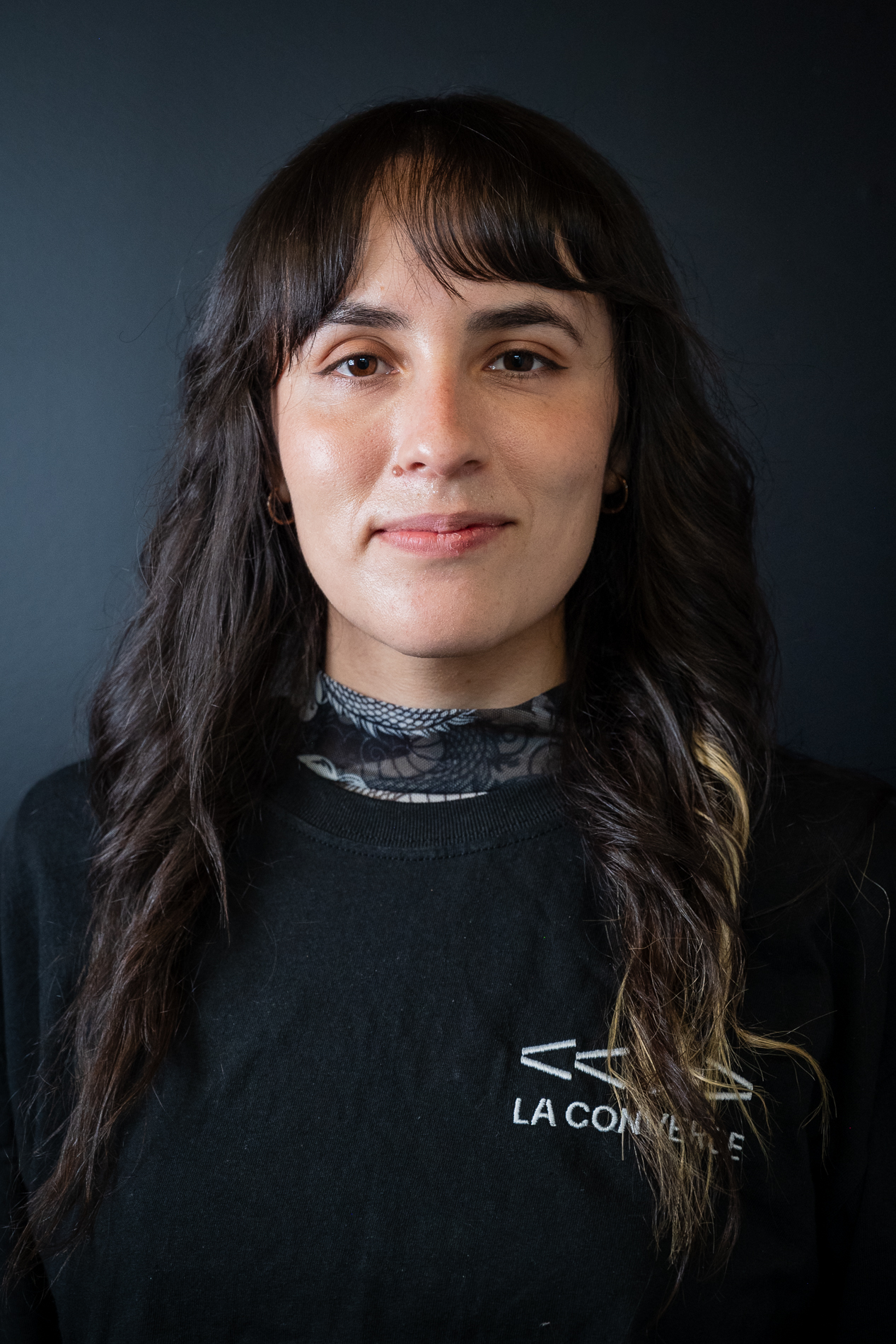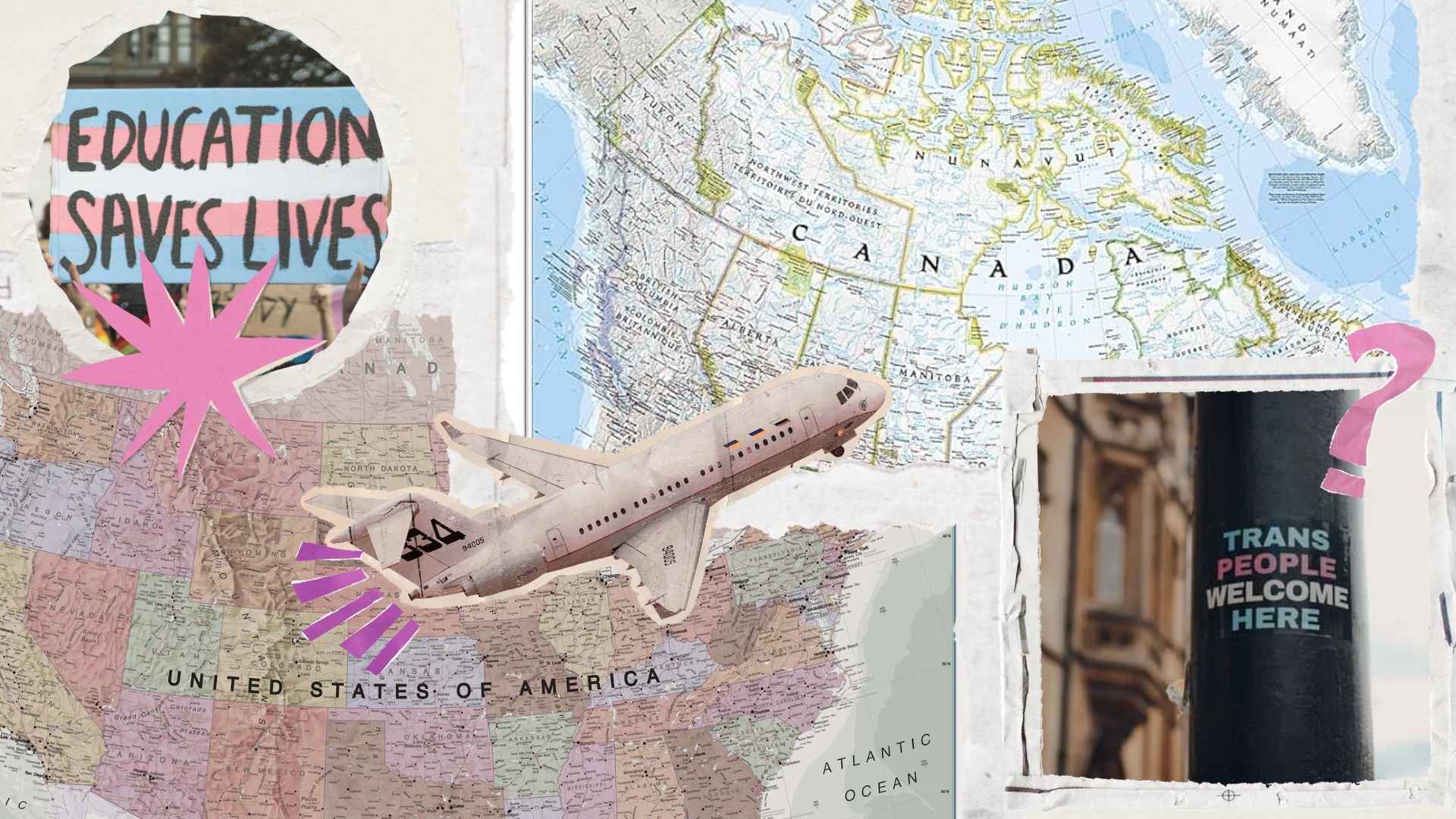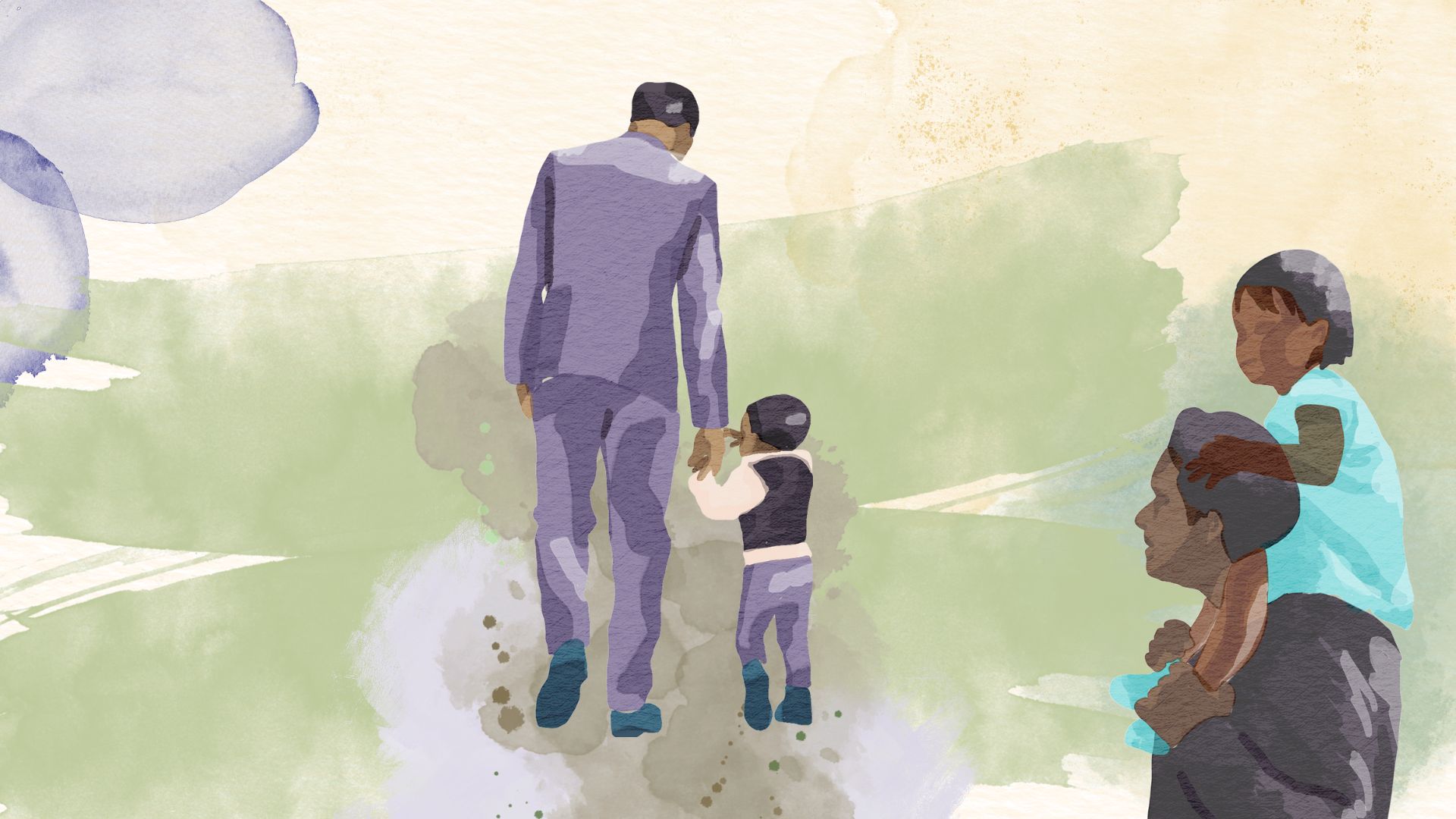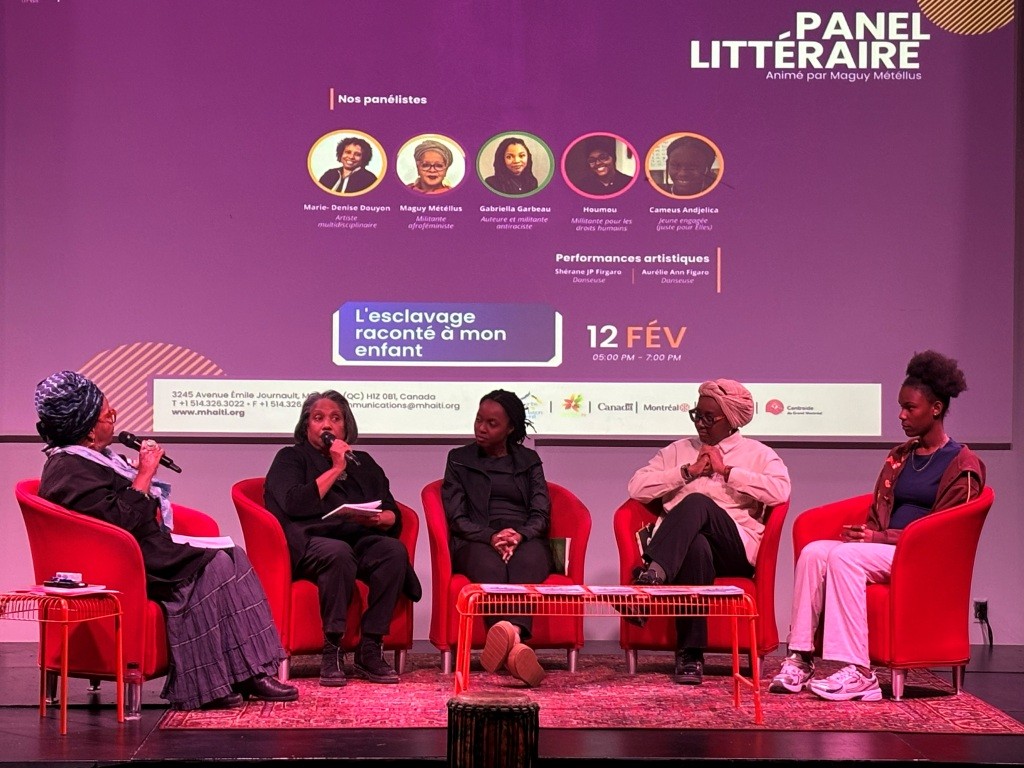The current climate of growing hostility and anti-trans legislation in Donald Trump’s second term has pushed trans people in the U.S to seek safe havens—either within the country or abroad. Some have filed asylum claims in Canada or intend to. However, for non-U.S. citizens coming from America, the Canadian asylum system is a barrier in itself for those seeking to escape a place that no longer feels safe.
Celeste Trianon, a transfeminine jurist and activist based in Montreal who advocates for the rights of trans people, doesn’t hide her concern about the current situation in the neighbouring country.
“It's gotten so bad that in the U.S., there are hundreds of thousands of internally displaced trans people,” says Trianon. “[There are] people who have fled from one state to another, to obtain gender-affirming health care or to be able to just survive and thrive as a trans person”.
In 2025 alone, 121 anti-trans bills and 12 executive orders have been passed in the U.S., restricting access for trans people to basic healthcare, education and legal recognition, to name just a few. While the total number of bills enacted is smaller than the number proposed, those that have passed are still severe enough to make trans people consider fleeing to Canada and filing asylum claims.
For Trianon, Canada’s position regarding the current situation in the U.S. is disappointing. “Canada has done nothing thus far. If the [U.S.] criminalizes trans people, they will have to flee, and once there's nowhere else to flee, where will trans people go? The afterlife?” says Trianon, frustrated.
In 2024, she founded Juritrans, a legal clinic in Montreal, right in the heart of Gay Village, to provide information for trans people who want to change their legal name or gender markers in Quebec, Canada and other countries, in some cases.
Now, Trianon is also providing information for trans people from the U.S. who want to relocate to Canada.
“The persecution of trans people in the U.S. has gotten so bad that trans people are no longer able to obtain passports that accord with their identity. In some cases, passports have been flat-out denied. [They] are facing a degree of state persecution,” says Trianon.
A long and expensive process that few can afford
Toronto lawyer Yameena Ansari represents Hannah Keager, a trans woman from Arizona who sought asylum in Canada earlier this year. Hannah had grown fearful in the U.S., especially after hearing rumours that President Donald Trump could invoke the Insurrection Act of 1807, potentially leading to martial law. With identity documents that still listed her assigned sex at birth, she worried about what might happen if she were stopped by authorities and unable to produce a matching ID. In April, she crossed into Canada, and her asylum claim was lodged last month.
However, Ansari currently has fewer than a dozen of these cases. Filing an asylum claim is a long and expensive process that few can afford. “It's not cheap to hire a lawyer, right? Trans people are generally a vulnerable population that is marginalized. They're not going to be the people with the deepest pockets,” says Ansari.
Apart from the monetary obstacles, filing an asylum claim can also be an extremely challenging process. For Catherine Dauvergne, a law professor at the University of British Columbia specializing in immigration and refugee law, Canada’s asylum system isn’t working as it should, despite having a good legal framework.
“Right now, it takes a terribly long time for an asylum claim to be heard in Canada,” explains Dauvergne. According to Immigration, Refugee and Citizenship (IRCC), it takes approximately 29 months to process a claim for someone who wants to relocate outside Quebec, and 45 months for people who intend to seek asylum in the province.
“It's a completely foreseeable problem that the government could address by putting more resources into that system. That's a failure of preparedness,” says Dauvergne.
“There’s an inequality in access to legal aid for asylum seekers”
In addition to the long waiting times, another major barrier is the Safe Third Country Agreement (STCA), which can exclude and marginalize non-U.S. citizens from claiming asylum in Canada. The agreement states that both countries recognize each other as safe nations. Therefore, refugees who aren’t U.S. citizens cannot seek protection in Canada if they have already entered the U.S. and vice versa.
“The underlying idea of the agreement, which is that Canada and the United States trust each other to protect asylum seekers adequately, is just very hard right now to think that could be true,” says Dauvergne.
In her eyes, the agreement was already wobbling before Trump’s second term, but the current political climate in the U.S. makes the STCA unsustainable. “The Canadian government doesn't need a court to tell it to get out of that agreement. It could do that any day, pretty easily,” explains Dauvergne.
In 2023, the Supreme Court of Canada issued a decision regarding the STCA, where it recognized that the U.S. may not be a safe country for all refugees. Although the Supreme Court mentioned that there are ‘safety valves’ in the agreement which prevent people from being sent back to the U.S. to face deportation, detention and solitary confinement, these aren’t accessible in practice.
“People who don't have a lawyer helping them and people who can't pay for a lawyer don't have any meaningful access to those kinds of safety valves. There's an inequality in access to legal aid for asylum seekers,” explains Dauvergne.
”Canadian law is very much unclear as to whether trans people in the U.S. are sufficiently persecuted”
According to Trianon, due to the barriers that trans people currently face with the STCA, many are applying for temporary resident visas, like study and work permits, to come to Canada, since the process is less complex than filing an asylum claim as a non-U.S. citizen. In the majority of cases, applying for temporary resident status does not require hiring a lawyer, as the step-by-step application process is detailed on the IRCC website.
Claiming asylum might also sound like an easy process. It can be made at any port of entry upon arrival or online if the person is already in Canada. Then, the Canada Border Services Agency or IRCC officials will determine if an individual is eligible to be referred to the Immigration and Refugee Board for a hearing. However, as Dauvergne explains, people need to have previous legal preparation for their asylum claim before even arriving at a port of entry in Canada to have access to the safety valves.
“Right now, Canadian law is very much unclear as to whether trans people in the U.S. are sufficiently persecuted in order to claim asylum in Canada,” says Trianon.
While Ansari feels optimistic about Keager’s asylum claim because the case has developed in a short amount of time, the challenge is whether Canada will consider that the U.S. is no longer safe for trans people.
“They will need to make an argument that they cannot be protected by the state anywhere in all of the United States,” explains Dauvergne. In her eyes, if Canada concludes that the U.S. isn’t a safe country for trans people, this decision could be influential; however, it won’t directly affect trans people from other nationalities who come from America to Canada seeking asylum due to the STCA.
“This is why we need to get rid of [the STCA] because even if we have decisions that say trans people aren't safe in the United States, the Safe Third Country Agreement says that if you're claiming asylum, you need to claim it first in the United States,” explains Dauvergne.
Despite the many rulings of the Canadian federal court about how the STCA violates the refugee’s rights to liberty and security, the Canadian government hasn’t made a pronouncement about whether the U.S. is still a safe country. In the meantime, Trump’s administration continues to issue bills and executive actions that restrict even more the access to basic human rights of trans people.
“It's only gonna get worse,” says Trianon.
Although for her, Canada is following the same path as the U.S. in relation to trans people’s rights.
“We're seeing more and more the degree of extremism, of anti-trans policy in Canada, just skyrocketing in the last year or so,” says Trianon.
For her, many recent legislative changes are worrisome, such as the recent policy in Quebec that states that transgender inmates will be imprisoned according to their anatomical sex.
“We need a society that actually respects human dignity, which unfortunately seems to have gone completely out of the window in the last 10 years across Canada,” says Trianon.
Did you enjoy this article?
Every week, we send out stories like this one—straight to your inbox.








.jpg)